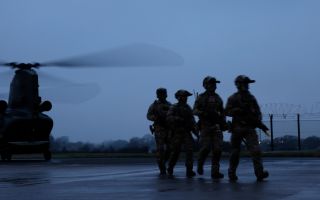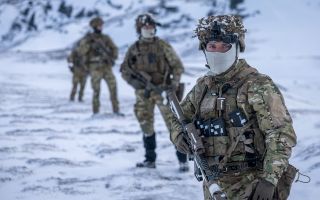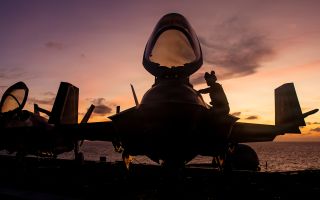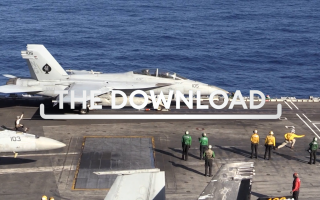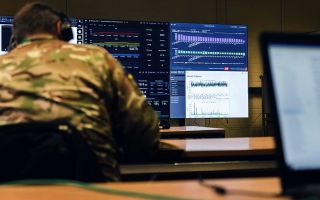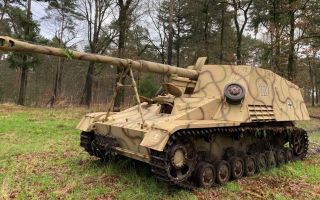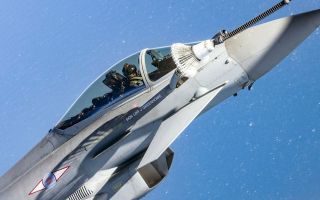REVIEW: Falkland Sound – a new play about the 1982 conflict
"I just want soldiers to stop defecating in my garden…"
It's one of the more light-hearted concerns of a resident caught up in the Falklands War, a conflict that has for the past four decades mostly been described in militaristic terms via the many books, television dramas and documentaries that focused on the subject.
Now, a new play shines a light on a different perspective, that of the islanders who found themselves at the centre of the invasion, the subsequent fighting, and the eventual liberation.
Although there are several moments in the play explicitly confronting the realities of war-fighting, the drama continuously reverts to the simple island existence uprooted thanks to this massive international dispute, which the residents must navigate on their doorsteps.
We are reminded that while events happen around them, they are just like the rest of us, normal people with normal problems.
Extra-marital affairs, the prospect of youngsters leaving home, the fragility of old age. And yet, the prospect of surviving a major war, literally in their back gardens, somehow solves these other, more personal conflicts.
Writer Brad Birch spent months on the islands conducting research, and he told Forces News that the conflict "has always been very present in my family".
He added: "My uncle was in the Royal Navy. He served on the Ardent, which he survived, but people close to him did not."
HMS Ardent was attacked by the Argentine Air Force on 21 May 1982, an event that saw the loss of 22 men. At the time, the Type 21 frigate was lying in Falkland Sound – the name of Brad's play.
Brad continued: "So it's always been a story in the family, quite a hard and sad story, and one that's been quite confusing sometimes as a child, too.
"But there's always been a complexity to it because obviously people very close [to my uncle] were lost."
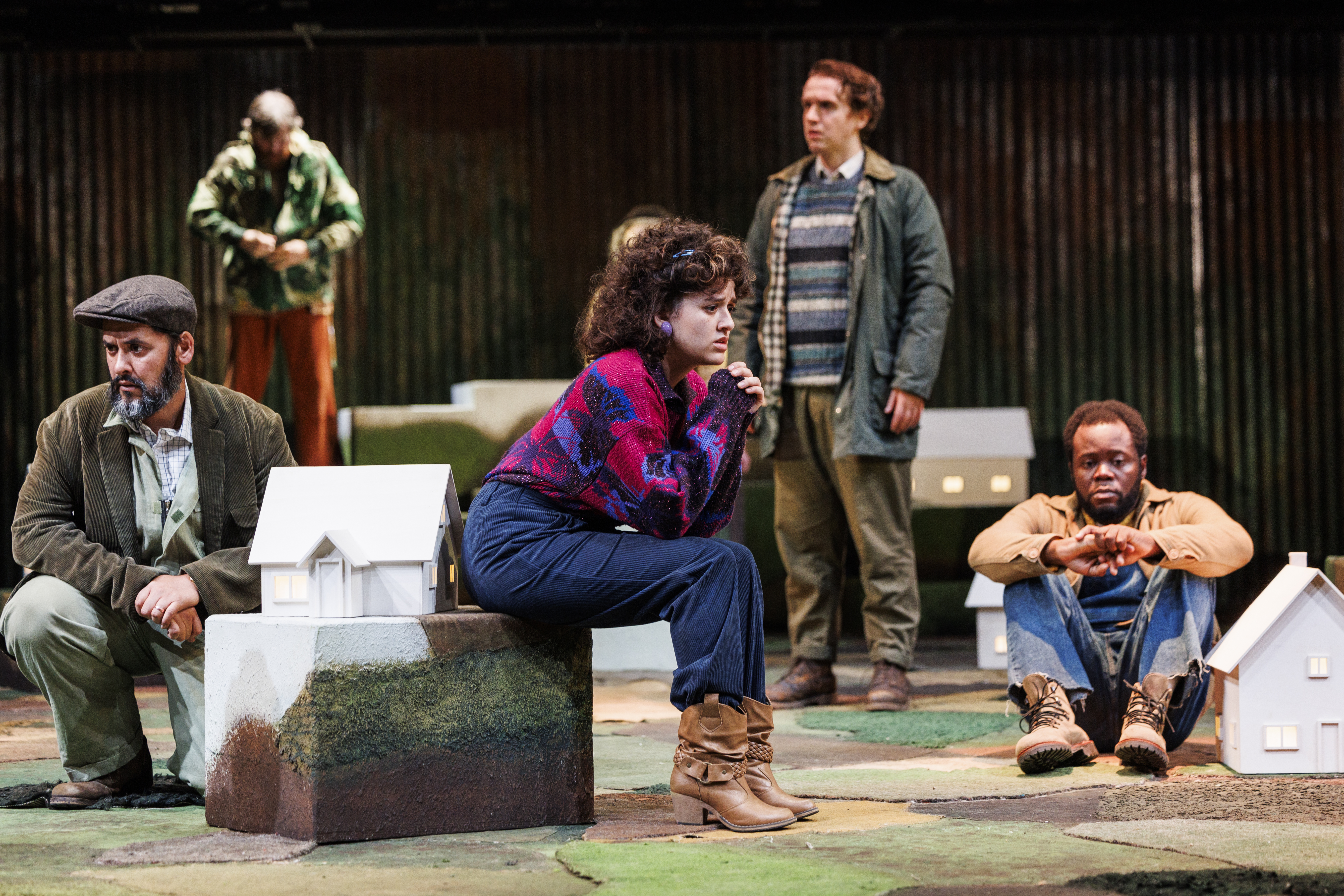
The play is for the most part set on the islands, all those thousands of miles away from the UK.
But intercut throughout the drama are scenes set closer to home, in the corridors of Whitehall and on the streets of Thatcher's Britain.
These moments reveal a nation that's not entirely sure where on the planet the conflict is taking place and the suggestion that the emergency came along at just the right moment for Britain's first woman Prime Minister. In these instances, the play feels more about Thatcherism than anything else.
But there are different opinions about the merits of the conflict, 41 years on. This is something director Aaron Parsons had to navigate when bringing his diverse cast of performers together for the production.
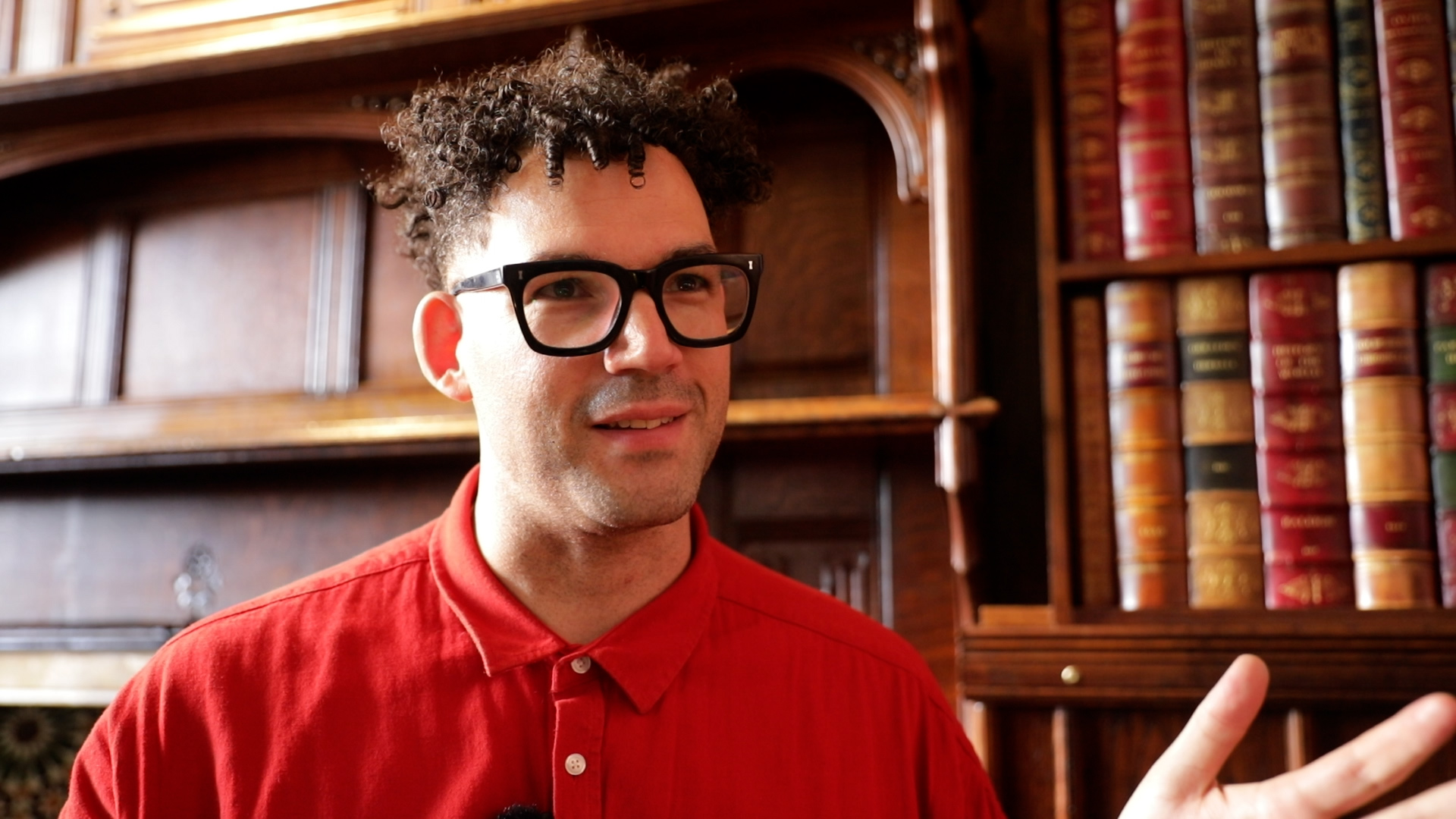
Aaron said: "I welcome it all, but knowing that we will all have different points of view.
"I think, at the end of the day, our responsibility is to hear all of those perspectives because our audiences will have all of those perspectives, too.
"We are always asking 'But what does the play say?' and 'What's it asking of us?', and because Brad has worked tirelessly to make sure that there's a spectrum and diversity in the narrative, we've made sure that we also invited historians in, veterans, and veterans from the islands, to talk to us about their own experiences, to make sure we were as broad-minded as the writing was."
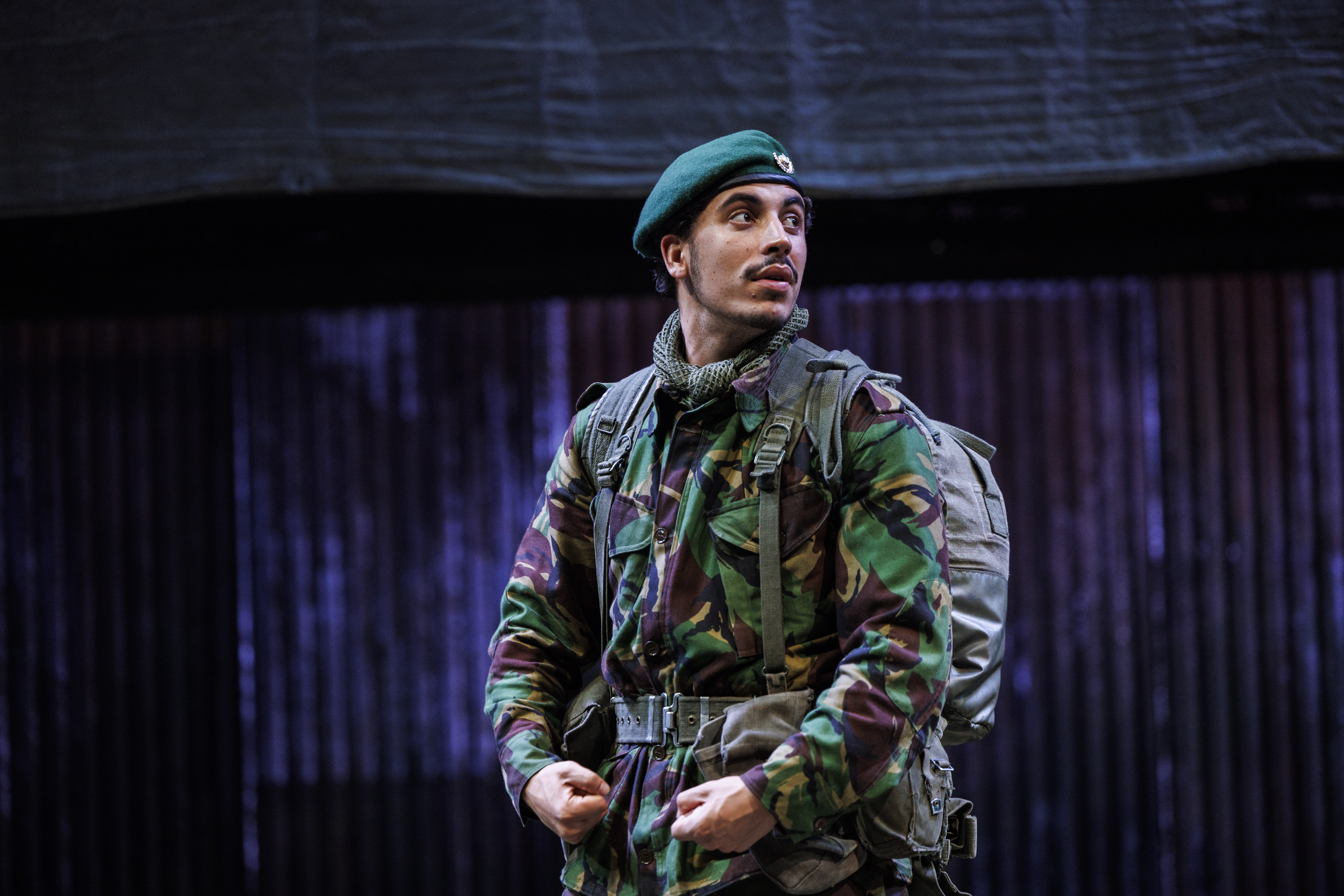
It would be unfair to say the play is neutral. The islanders make clear again and again they are British, but there is somewhat of a balance in the portrayal of the two militaries on the stage, primarily represented by characters Robbie (Joe Usher), a Mancunian Royal Marine, and Sebastian (Alvaro Flores), an Argentine military officer. They are both often charming and sometimes lacking morally.
On the side of the invaders, the portrayal of conscripted troops starving to death invokes empathy, on the British side, a nonchalant reaction by the marine to a shopkeeper's store burning down incurs some tuts from the crowd. The play says both of these matters need not have happened.
But, of course, the play is not about invaders or liberators. It's about the islanders in the micro sense, but more philosophically, all innocent bystanders caught up in wars everywhere. On that front, Falkland Sound is well worth seeing.
Falkland Sound runs until 16 September at the Swan Theatre, Stratford-Upon-Avon.

